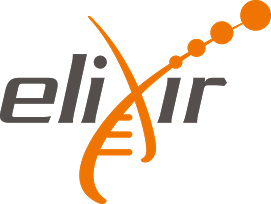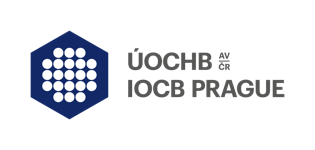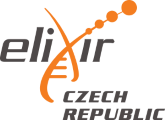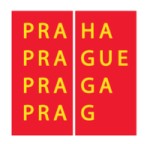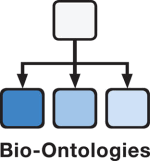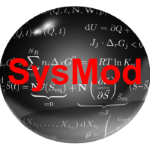Call for Abstracts – ISMB/ECCB 2017
Call for Abstract Submissions: Opens January 3, 2017
- Abstracts Track: About
- Communities of Special Interest (COSIs)
- Abstracts Track: Deadlines
- Abstracts Track: Review Criteria
- Abstracts Track: Submission Guidelines
Abstracts Track: About
We invite abstracts for research that is topical to bioinformatics and computational biology, which is in progress or has been published. The presenter should identify themselves as the corresponding author during the submission process, and accepted presenters are required to make the presentation themselves, and must register and pay to attend the conference. Please note a presenting author can present only one oral talk at ISMB/ECCB 2017.
COSI sessions at ISMB/ECCB 2017 replace the SIG sessions held in previous years and are organized by the same communities of people who organised the SIGs. Talks will be organized according to scientific topics which are covered by the 13 Communities of Special Interest (COSIs) listed below, however, abstracts need not be limited to COSI topics. If the topic of your submission falls outside the listed COSI topics, please use the link from the ‘Other’ submissions page.
Note: This Abstracts call includes research that would have been submitted to the Highlights or Late Breaking sessions at previous ISMB meetings. Abstracts selected for presentation are not published and will appear on the conference website. Presentation times for abstracts will be announced after notifications.
Multiple talks: The same talk is not permitted to be given more than once as an oral presentation at ISMB/ECCB 2017. Research may presented as both a talk and poster. Researchers may submit more than one talk to the meeting. Having the same person deliver two (or more) different talks is possible (and not prohibited), but it is not encouraged. This allows for many people from one lab to present the work of the lab.
| Abstract Submission Key Dates | |
|---|---|
| Tuesday, January 3, 2017 | Call for Abstracts Opens |
| Thursday, April 13, 2017 | Abstracts Submission Deadline |
| Monday, May 1, 2017 | Abstracts Submission Deadline (3DSIG) |
| Wednesday, May 10, 2017 | Acceptance Notification |
| Friday, May 19, 2017 | Abstracts Submission Deadline CAMDA |
| Friday, May 26, 2017 | Acceptance Notification (CAMDA) |
Communities of Special Interest (COSIs)
3Dsig
This session covers the full range of research topics and applications involving structural bioinformatics/computational biology. Event/submission URL: http://www.fourwav.es/3dsig17
3DSIG is the go to event in structural bioinformatics and computational biophysics. 3DSIG is an integral part of ISMB/ECCB with two full days of keynote presentations and oral presentations chosen from the submitted abstracts creating an unique environment for the exchange ideas between keynote speakers, PIs and students at all levels. It is impossible to fully understand biological systems without understanding the 3D structure of their constituting parts and their interactions. As such the topics relevant for 3DSIG are wide and include, but are not restricted to Structure-based drug discovery including polypharmacology and network pharmacology; Structure representation, classification and prediction; Structure-based function prediction; Docking, analysis, prediction and simulation of biomolecular interactions such as protein-protein, protein-ligand and protein-nucleic-acid; Protein dynamics and disorder; Evolution studied through structures; Application of structure to systems biology; Macromolecular assemblies; Structural genomics; 3D databases and data mining; Molecular visualization; Relevant methods of structure determination particularly hybrid methods; Prediction and analysis of protein domains; Membrane protein structure analysis and prediction; The structural basis of immunology.
Keywords: Drug-discovery; Structure representation/classification/prediction; Structural basis of macromolecular function; Prediction and simulation of biomolecular interactions; Dynamics of biological macromolecules; Evolution studied through structures; Structural systems biology/pharmacology; 3D visualisation/data mining/databases; Structure-based protein engineering; Structural basis of human diseases
Bio-Ontologies
Bio-Ontologies Special Interest Group (SIG) covers the latest and most innovative research in the application of ontologies and more generally the organisation, presentation and dissemination of knowledge in biomedicine and the life sciences.
Bio-Ontologies is celebrating its 20th year as a Special Interest Group (SIG) at ISMB. It provides a vibrant environment for reporting novel methods and sharing experiences on the construction and application of ontologies in health care and the life sciences. The informal nature of the SIG offers a constructive environment to nurture discussion of innovative and scientifically sound work that range from preliminary to completed, from both young and experienced investigators alike. Bio-Ontologies participants also benefit from a strongly interdisciplinary setting, where ISMB attendees intermingle with members from American Medical Informatics Association (AMIA) and the W3C’s Healthcare and Life Sciences interest group (HCLSIG), thereby increasing impact through broader dissemination and enabling new and exceptional collaborations.
COSI submission page: http://www.bio-ontologies.org.uk
Keywords: Ontology; Knowledge representation; Data integration; Automated reasoning; Text mining: Machine learning; Biocuration; Semantic web; Deep phenotyping; Learning health system
BioVis
The BioVis session aims to educate, inspire, and engage bioinformatics and biology researchers in state-of-the-art visualization research and visualization researchers in problems in biological data visualization.
The rapid adoption of data-intensive biology approaches creates enormous challenges for computational visualization techniques, which are needed to enable researchers to gain insight from their large and highly complex data sets. The goal of this session is to bring together researchers from the visualization, bioinformatics, and biology communities with the purpose of educating, inspiring, and engaging bioinformatics and biology researchers in state-of-the-art visualization research, as well as visualization researchers in problems in biological data visualization.
Biological data visualization; Visual data analysis; Visualization tools and libraries; Usability of visualization, genome and sequence data visualization; Network and pathway visualization; Multivariate data visualization; Imaging data visualization; Workflow and process visualization; Metadata visualization
For additional details on BioVis visit: http://biovis.net/2017/cfp_ismb/
To submit an abstract for BioVis see: https://easychair.org/conferences/?conf=biovis2017
Bioinformatics Open Source Conference (BOSC)
The Bioinformatics Open Source Conference (BOSC) is organized by the Open Bioinformatics Foundation (OBF), a non-profit group dedicated to promoting the practice and philosophy of open source software development and open science within the biological research community. Since its inception in 2000, BOSC has provided a forum for developers and users to interact and share research results and ideas in open source bioinformatics. BOSC’s broad spectrum of topics includes practical techniques for solving bioinformatics problems; software development practices; standards and ontologies; approaches that promote open science and sharing of data, results and software; and ways to grow open source communities while promoting diversity within them.
Keywords: Open source; Open science; Open data; Reproducible research; Interoperability; Data science; Workflows; Translational bioinformatics; Diversifying bioinformatics communities
Website: https://www.open-bio.org/wiki/BOSC_2017
Abstract submission info: https://www.open-bio.org/wiki/BOSC_Abstract_Submission
CAMDA
The large, complex data sets for the Critical Assessment of Massive Data Analysis (CAMDA) contest include built-in truths for calibration. In an open-ended competition, however, both seasoned researchers and cunning students push the boundaries of our field, with unexpected questions or angles of approach often bringing the most impressive advances. We thus particularly encourage extended abstract submissions by young scientists, and colleagues taking a novel approach. Travel fellowships can support attendance. The best analysis prize is awarded by the delegates in the audience. Open discussion of different approaches encourages exchange, and is complemented by keynotes of leading researchers - recently, e.g., Atul Butte and Sandrine Dudoit (Stanford), Mark Gerstein (Yale), Curtis Huttenhower (Harvard), John Quackenbush (Dana Farber Cancer Institute, Boston), Chris Sander (Memorial Sloan Kettering Cancer Center, New York), Eran Segal (Weizmann Institute, Israel), John Storey and Olga Troyanskaya (Princeton), and Terry Speed (Berkeley & WEHI).
The Critical Assessment of Massive Data Analysis (CAMDA) sessions highlight and compare the latest methods and results in an international data analysis contest, with this year's topics including: (1) a cancer data-integration challenge for 500 children patients (FDA SEQC), (2) a meta-genomics challenge comparing swabs from subway stations in multiple cities (MetaSUB), and (3) a meta-genomics signal level challenge in Oxford Nanopore 'wiggle space'.
Contest and submissions: http://contest.camda.info
Keywords: International data analysis contest; Community wide experiment; Critical assessment of massive data analysis; Meta-genomics, cancer, data integration, gene expression, genomic deletions and duplications; Next-generation sequencing / RNA-seq, microarrays
Function
The mission of the Function Special Interest Group (Function-SIG) is to bring together computational biologists, experimental biologists, biocurators, and others who are dealing with the important problem of gene and gene product function prediction, to share ideas and create collaborations. The Function-SIG holds annual meetings alongside ISMB. Also, we are conducting the multi-year Critical Assessment of protein Function Annotation, or CAFA, experiment.
Keywords: Protein function; Ontologies; Machine learning; Computational challenge; Annotation
Website: http://biofunctionprediction.org/
Submissions: http://biofunctionprediction.org/abstract_submissions/
HitSeq
HiTSeq is a special interest group devoted to the latest advances in computational techniques for the analysis of high-throughput sequencing (HTS) data.
Sessions will be devoted to discussing the latest advances in computational techniques for the analysis of high-throughput sequencing (HTS) datasets and will provide a forum for in-depth presentations of the methods and discussions among the academic and industry scientists working in this field. We seek contributions on any topic involving HTS data analysis including: genome assembly and haplotype phasing; transcriptome analysis; genetics and epigenetics variation; metagenomics and microbiome analysis; and new HTS platform data analysis (e.g. synthetic reads, long reads, nanopore). In addition to general sessions, we propose to have two specialized sessions to focus on current hot topics: a) long sequencing and mapping techniques, b) single cell sequencing applications, c) non-linear genome representations. Both of these topics have generated an enormous amount of interest recently.
Keywords: High-throughput sequencing; NGS; Algorithms; Read mapping; Data structures, Variant calling; DNA sequencing; RNA-seq; Single cell; Precision medicine
Submission Link: https://easychair.org/conferences/?conf=hitseq2017
Website: http://hitseq.org
RNA
This session covers the full range of research topics in the field of RNA Biology, from computational and high-throughput experimental methods development to their application in different aspects of RNA processing, structure, and function.
The goal of the Computational RNA Biology session is to bring together experts in computational and experimental aspects of research in RNA Biology to cover new developments across this broad field of research. The meeting focuses on two major areas: (1) the development of computational and high-throughput experimental methods, and (2) the application of such methods to break new grounds in the study of RNA biology and disease. We aim to educate and inspire researchers in the field, novice and seasoned alike, by meshing together different aspects of Computational RNA Biology, and promoting cross-disciplinary collaborative research.
Keywords: Transcriptomics; RNA processing; Post-transcriptional regulation; Non-coding RNA; RNA 2D/3D structure, alternative splicing, alternative polyadenylation; RNA editing translation degradation and localization; Orotein-RNA interactions; Genetic variants effect on RNA processing; RNA and disease
Network Biology (NetBio)
This session covers the full range of research topics and applications in the field of Network Biology.
Keywords: Molecular networks; Molecular interactions; Network analysis; Network visualization; Network alignment; Network reconstruction; Heterogeneous networks; Diagnostic networks,: Network tools, Network databases
The goal of the Network Biology session is to cover new developments across this important and still burgeoning field. The session will focus on two major areas: (1) the development of network-related tools and resources, and (2) the application of network analysis and visualization in the study of biology and medicine. The session will thus provide a unique interface between tool developers and users in the field of network biology. Through these complementary lenses, the session will bring into focus the current state of the field, its future promise and how to get there.
Regulatory Genomics Special Interest Group Meeting (RegGenSIG)
Abstracts Area Chairs - RegGenSIG: This email address is being protected from spambots. You need JavaScript enabled to view it. and Julia Zeitlinger
Regulatory genomics involves the study of the genomic "control system," which determines how, when and where to activate the "blueprint" encoded in the genome. Regulatory genomics is the topic of much research activity worldwide. Since computational methods are important in the study of gene regulation, the RegGenSIG meeting focuses on bioinformatics for regulatory genomics. An important goal of the meeting is to foster a collaborative community wherein scientists convene to solve difficult research problems in all areas of computational regulatory genomics.
Key words and phrases:Gene regulation; ChIP-seq, RNA-seq, ATAC-seq; Transcription factors; Enhancers; Chromatin; Gene promoters; Regulatory elements; Epigenetics; Regulatory motifs and modules; Epigenomics and chromatin state; Alternative splicing; Pathway analysis; Non-coding RNAs; Regulatory networks; Co-transcriptional, post-transcriptional, and translational regulation; Genetic, molecular, and phenotypic variation and human disease; The role of non-coding mutations in disease; DNA shape; Single-cell transcriptomics (and other single cell assays); 3D genomics (e.g., Hi-C and ChIA-PET); Epitranscriptomics; Regulatory evolution or comparative regulatory genomics
Computational Modeling of Biological Systems (SysMod)
The Computational Modeling of Biological Systems (SysMod) aims to create a forum for systems modelers and bioinformaticians to discuss common research questions and methods. The session will focus on the conjoint use of mathematical modeling and bioinformatics to understand biological systems functions and dysfunctions. The meeting is open to the full range of methods used in systems modeling, including qualitative and quantitative modeling, dynamical and steady-state modeling, as well all applications of systems modeling including basic science, bioengineering, and medicine.
Key words and phrases: Mathematical model; Numerical simulations; Whole genome metabolic models; Signalling pathways; Systems medicine; Quantitative systems pharmacology; Data and model integration; Model parametrization; Multi-scale models; Synthetic biology
Submission Link: http://sysmod.info/SysMod_ISMB_2017:_Call_for_Abstract
TransMed
This session covers the current developments in the field of clinical and translational medicine informatics.
In this TransMed session, we will explore the current status of computational biology approaches within the field of clinical and translational medicine. Large amounts of multi-omics, imaging (medical and molecular) and clinical data can now be captured for given patient populations. This opens the debate on current state-of-the-art data infrastructures for translational medicine data integration and analysis. A variety of computational approaches are currently being used to harmonize and relate molecular data to clinical outcomes in order to better understand disease conditions. These methods also have the potential to discover biomarkers for early detection of disease, and targets for drug discovery, and to be used predictively to help to suggest personalised therapeutic strategies for patients. In this session we will bring scientists from both academia and industry to exchange knowledge and foster networking, to help in building up of the translational medicine community.
Keywords: Translational medicine; Clinical and ‘omics data integration; Curation and harmonization; Stratification of patients; Informatics for integrating biology and the bedside; Medical informatics; Ontology-driven data representation; Patient centered outcomes research; Cohort data; Deep learning
Website: http://transmedit.org
VarI
VarI-SIG session discusses the recent advances in the methodology for the annotation and analysis of genetic variants.
The VarI-SIG meeting is dedicated to the recent advances in the analysis and interpretation of the genetic variants. The meeting aims to organize a research network (VarI-COSI) facilitating the exchange of ideas and the establishment of new collaborations between researchers with different expertise. The VarI-SIG meeting is broadly divided in two sessions (“Genetic variants as markers: evolution, populations, GWAS” and “Genetic variants as effectors: function, structure, and regulation”) that encompass the four major research topics of the field:
1) Databases, data mining algorithms and visualization tools for variants analysis. 2) Methods for predicting regulatory/structural/functional impacts of SNVs. 3) Personal Genomics, GWAS studies and SNV prioritization. 4) Population genomics and phylogenetic analysis.
Website: http://varisig.biofold.org/
Keywords: Genetic variant; Functional impact; Pathogenic variant; Variant annotation, Machine learning, Gene prioritization; Protein structure; Protein stability; Regulatory variant; Gene network
Other Topics
Abstracts Area Chair - Other: This email address is being protected from spambots. You need JavaScript enabled to view it., Carnegie Mellon / University of Pittsburgh, United States
Other Topics represents research areas that are not included in the above COSIs. Selected abstracts will be programmed into parallel tracks throughout the meeting. If your abstract is technical in nature, please visit the Technology Track submission portal here.
Keywords: 3D genomics; Biological imaging and image analysis; Data compression and storage; Metagenomics, mathematical and computational medicine, RNA structure; New sequencing technologies; statistics; and more…
Authors are to provide a one (1) page, total, extended abstract of their work. (Including a figure is optional). References can be included. Submissions will be evaluated on the potential for an excellent and interesting presentation. Significance, interest to the bioinformatics community, and biological/medical impact will be the key evaluation criteria. Each submitter must provide a title, a short one (1) paragraph public abstract for inclusion in the electronic conference program and website. A one or two (1 or 2) sentence summary of novelty and significance of the work is to be included.
To submit to Abstracts: Other Topics go to: https://easychair.org/conferences/?conf=ismbeccb2017abstract
Abstracts Track: Deadlines and Presentation Length
Any recent research, published or unpublished is eligible to be presented as a talk.
Acceptance notifications will be sent no later than Wednesday, May 10, 2017.
Selected Abstract talks will be presented in thematic tracks that run in parallel at the conference. The length of the presentation is determined by the schedule of the COSI session (please follow links above to COSI submission sites for more details).
Abstracts: Review Criteria
All submissions will be evaluated by COSI Chairs according to the criteria highlighted on the COSI submissions page. Please click on the COSI link above to see their evaluation criteria.
Abstracts: Submission Guidelines
Please see guidelines on each COSI submission site and for Other by clicking on the link above.





